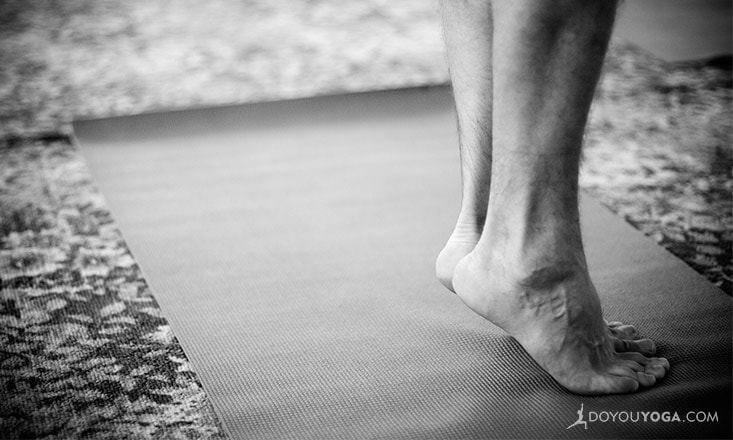Today marked the first day in nearly three weeks I unrolled the mat. As I did so, my body protested with creaks and groans, apparently bracing for the physical recalibration certain to follow this day’s sequence.
This wasn’t necessarily a planned hiatus, rather the nasty side effect of a “full schedule” that required a pause on most things that I hold dear.
As is the very nature of experience, however, all was not lost. Once the blood started flowing in a manner only asana can conjure, the veil was lifted, as the cliché goes. I glimpsed the value of this choice, the silver lining in the chaotic rhythms of busy-ness.
Here is what I learned about yoga when I stopped practicing it for some time.
Yoga is a discipline requiring our full attention.
I’ve often told myself that doing this or that is ok, knowing full well that, deep down, given my particular values and personal vision, it definitely IS NOT. Whether it’s going out for beers or watching a game—you name it, I’ve figured out a way to justify it.
Yoga practice is no exception. Teachers coddle students and students coddle themselves. We convince ourselves that if we get on the mat for a few sun salutations everyday, or take a few classes a week, we’ll reap the benefits of the practice. This is only partially true.
Sure, asana, seated meditation, chanting mantra, or gesturing mudra are great. To touch on the true purpose of yoga, however—the profound self-awareness, the revelation of the true self—we must surrender to the entire methodology of the discipline: commit to the entire breadth of the teaching.
Yoga is a life path, a deep practice that needs our full attention. I know this because I am, at times, made acutely aware of what yoga must penetrate to deliver its intent. The science of yoga takes a chisel to the calloused shell of self, a shell that quickly reforms and morphs at every attempt of penetration.
I’ve often winced from hearing yoga described as a battle, a process of arming a warrior (the true self) with the tools to fight against ego. The last thing we need, I tell myself, is another “war” metaphor.
Yet, I think I’m starting to see the value in the symbol; yoga requires our focus, full and undivided, like a warrior preparing for the fight.
Yoga cultivates sensitivity
During the past three weeks, I’ve been painfully cognizant of the effects of my yogic neglect. I can feel my body as never before, I am in tune with its rhythms (even if I don’t always know how to respond), and know when something is misaligned.
I could feel the void in my life when removing the reflective exercise, the moving meditation that asana normally provides. I could feel my hamstrings tightening, feel the anguish in my hips, as I not only neglected them but added stress into their experience.
I also know that even the slightest pause in the practice undoes a significant benefit afforded by a daily routine. I could feel a distancing, a cloud of sorts, enveloping my personal reality—like I’d lost touch with some essential ingredient in life.
One might say the increased sensitivity cultivated by yoga practice is a blessing and a curse: a blessing because we are now in touch with a deeper connection to life, and a curse because we can’t pretend and blindly lead our lives any longer.
Once we engage in the yogic path, in some capacity, there is no going back; we can no longer engage in decisions that are detrimental to the self, including pausing the practice.
……..
How can we not help but smile at the paradoxical nature of life? Here I am, neglecting my yoga practice, criticizing myself for it, and—in the end—feeling more attracted to yoga than when I left.
It serves as a final reminder (and perhaps a third lesson) that we are truly given everything we need for our personal journey right here and now. Take it all in stride. I certainly will.


